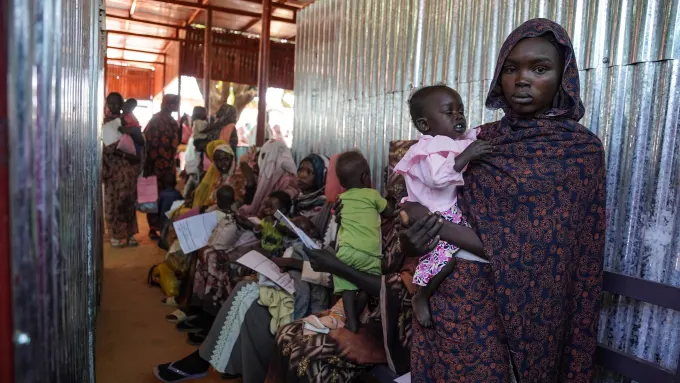Famine has been officially declared in the Zanzam refugee camp located near El Fasher, North Darfur, marking a dire turn in Sudan’s ongoing civil conflict.
The announcement, made by food security organizations, underscores the severe toll exacted on the population after 15 months of intense warfare.
The United Nations-backed Famine Review Committee (FRC) confirmed the declaration, citing unprecedented conditions in the camp where nearly half a million people have sought shelter since the conflict escalated in April 2023.
This declaration is only the third in 20 years of monitoring and the first in over seven years, serving as a stark call for international intervention to prevent further fatalities.
“While the declaration is confined to the Zanzam camp, many other regions across Sudan remain vulnerable to famine as conflict persists and humanitarian access remains restricted,” warned the FRC in its report.
El Fasher, the capital of North Darfur state, has been under siege by the Rapid Support Forces (RSF) since earlier this year, exacerbating an already dire humanitarian crisis that has engulfed the country.
Sudan, once considered a regional agricultural hub, now faces one of its worst humanitarian disasters in recent history, with over 10 million internally displaced and more than 25 million people confronting acute hunger.
The Integrated Food Security Phase Classification (IPC) defines famine as an extreme lack of food leading to starvation, severe malnutrition, and death. The situation in Zanzam has reached critical levels, with reports from the World Food Programme (WFP) earlier this year indicating that residents were resorting to eating grass and peanut shells to survive.
Both the FRC and FEWS NET, the UN-backed Famine Early Warning Systems Network, have issued warnings that the famine in Zanzam could spread to other parts of El Fasher, affecting an additional 800,000 people. They anticipate the famine conditions to persist at least until October, underscoring the urgent need for sustained humanitarian efforts and conflict resolution.
“The primary drivers of this famine are conflict and limited humanitarian access, issues that can be immediately addressed with political will,” emphasized the FRC, urging all parties involved in the Sudanese conflict to prioritize the delivery of humanitarian aid and facilitate peace negotiations.



